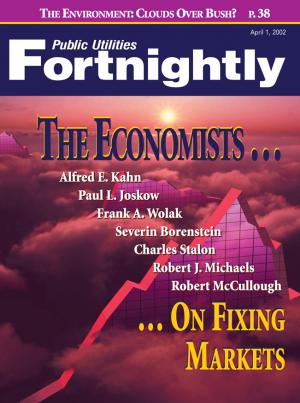Can California’s energy market be salvaged?
Arthur O’Donnell is editor and associate publisher of the California Energy Markets newsletter. The interviews with economists cited in this article were conducted through a contract with the Energy Foundation with the support of the Hewlett Foundation. Complete texts of the interviews will soon be available on a Web site created by the Foundation.
There was probably a time when decisive action by regulators, lawmakers and market participants working in cooperation could have prevented much of California's energy debacle of 2000 and 2001. A brief window of opportunity cracked open sometime between the summer price spikes that politicized the San Diego community and the winter emergency blackouts that made California an object of pity and derision around the world, a fleeting period during which it was possible to recognize and head off the looming crisis.

Fuel supplies and stable-price energy contracts could have been secured to guarantee that power was available when and where it was needed. A temporary increase in retail power rates might have stemmed the growing financial distress of utilities and assured suppliers that they would continue to be paid. A truce between politicians and market players would have set aside the politics of mistrust, defensiveness and recrimination that continue to characterize the lengthy and costly energy crisis.
Well, coulda, woulda, shoulda.

